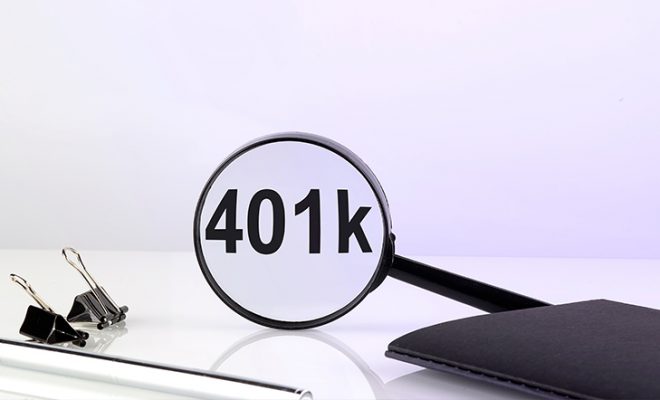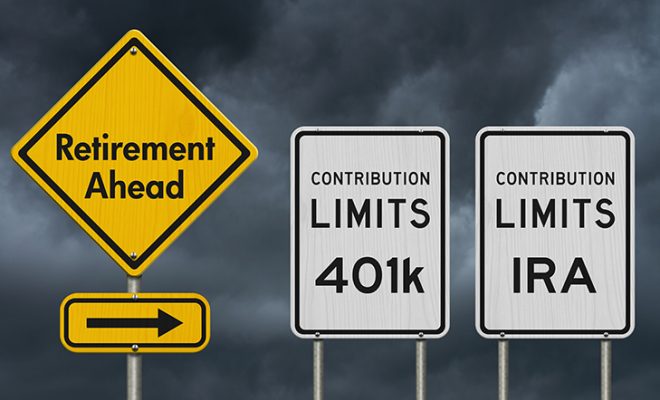What Happens to a 401k Inheritance After One’s Death?

Any money left in a 401k account at the time of the account holder’s demise can be passed on to heirs. Your 401k can be inherited by a spouse or anybody listed by you as a primary or a contingent beneficiary. Inheriting a loved one’s 401k can be a significant financial windfall, but it can also raise questions about how to manage the funds and what taxes may be due. The concern is equally valid for the 401k owner as it is for the inheritor.
While a spouse and non-spouse beneficiary can inherit a 401k, the rules for each may differ. Consult with a professional financial advisor who can help explain these rules in detail and plan for the inheritance of your 401k after your demise. In this article, we will explore what happens to a 401k when one dies and what options beneficiaries have for accessing and managing inherited funds. Whether you are the beneficiary of a 401k or simply curious about how this type of retirement account is handled in estate planning, read on to learn more.
What happens to a 401k when one dies?
The 401k retirement account is a retirement savings and investment plan which is seen as an asset of the deceased person. Consequently, it is added to the concerned individual’s taxable estate. A 401k account holder has the provision of adding a primary and contingent beneficiary. This can be a spouse, partner, child, friend, relative, etc. If the primary beneficiary is alive, they become the rightful inheritor of the 401k account. However, if the primary beneficiary is no more, the contingent beneficiary is entitled to receive the 401k funds. It is strongly advised to nominate beneficiaries after careful evaluation and thought to ensure your loved ones are financially protected in your absence. It is also essential to update the beneficiaries based on the changes in your personal life.
When a person dies, their estate may go through the process of probate. Probate is the process of legally distributing the assets and property of a deceased person according to their will or, if there is no will, according to state law. The probate process involves proving the validity of the deceased person’s will, identifying and valuing their assets, paying off any outstanding debts or taxes, and distributing the remaining assets to the designated beneficiaries. A 401k beneficiary does not have to wait until the probate process is finished. They can access 401k funds almost immediately, even if the rest of the estate is undergoing probate.
Since the distributions of a traditional 401k are taxable in retirement, the beneficiary of the account will owe income tax on the withdrawals. The inheritor will also have to pay estate tax. The exact tax dues can differ based on when and how the funds are withdrawn and who the beneficiary is.
Types of 401k beneficiaries and how they inherit the money
There are broadly two types of 401k beneficiaries – a spouse and a non-spouse. Here are some things to know about each of these categories:
A. How a surviving spouse beneficiary can inherit 401k funds
Most 401k account holders nominate their spouse as the beneficiary. The surviving spouse can be married to the account holder or divorced at the time of their demise. Typically, updating your beneficiary if you are divorced, have remarried, or no longer want your ex-spouse to inherit your account is advised. However, you may require written consent from the ex-spouse in some states. A financial advisor can help you understand this process better.
If your surviving spouse inherits your 401k account, they can have four options to withdraw the funds:
1. Take a lump sum distribution and pay income tax
If the surviving spouse needs lump sum funds or does not want to go through the hassle of periodic distributions, they can draw the entire corpus in one go. If the spouse is over the age of 59.5, they will not incur any penalty on the distribution. However, it is essential to understand that a lump sum distribution for the spouse will put them in a higher tax bracket for the year in the case of a traditional 401k. This can reduce the value of the corpus considerably. Therefore, when considering this option, it is essential to pay attention to factors like the value of the 401k fund, other income for the year, tax rates prevailing at the time, the need for money, etc.
A Roth 401k will not trigger any tax for the inheritor as there are no tax liabilities on Roth 401k distributions.
2. Roll over the money into an annuity
The spouse can roll over the money into an annuity or a life insurance policy. This will offer the spouse the same benefits of a 401k along with an additional death benefit.
3. Roll the money into their 401k account to allow the funds more time to grow
If the surviving spouse has a 401k of their own, they can roll over the money into their 401k account if they have one. This will allow the funds to grow more with time. The surviving spouse can also roll over the money into an Individual Retirement Account (IRA). In this case, the rules of a regular 401k will apply to the spouse. The spouse will have to make Required Minimum Distributions (RMDs) from the age of 73 (as of 2023). In the case of no RMD, the spouse will owe a 25% penalty on the amount not withdrawn. The spouse will also incur a 10% penalty if the money is withdrawn before the age of 59.5.
Keep in mind, if the rollover is made from a traditional 401k account to a Roth 401K or Roth IRA, the spouse will have to pay applicable income tax on the rollover.
4. Roll the inherited 401k funds into an inherited Roth IRA to avoid an early withdrawal penalty
Most people use a 401k and an IRA to save for their retirement. Chances are that a spouse inheriting a 401k may also inherit an IRA. A Roth IRA can offer better benefits and flexibility with respect to withdrawals. Since Roth IRA distributions are not taxed, account owners and inheritors can draw their money after the age of 59.5 without any penalty.
5. Not withdraw any money from the inherited 401(k) to avoid tax
The surviving spouse can let the money lie in the 401k as it is. This will eliminate any income tax owed on the funds. However, the RMD rule will be applied when you or your deceased spouse turns 73. If your spouse was drawing RMDs before passing, you could continue to draw RMDs or delay them if you are not 73 yet, but over the age of 59.5. If your spouse is not 73 and not withdrawing RMDs, you can avoid taking RMDs till your spouse has turned 73.
However, if you are 73, you would have to draw RMDs to avoid a 25% penalty on the amount not withdrawn.
SPONSORED WISERADVISOR
B. How a non-spouse beneficiary can inherit 401k funds
A lot of people may nominate their children, relatives, friends, or unmarried domestic partners as their 401k beneficiaries. In this case, the beneficiary can use the following three options:
1. Take a lump sum distribution and pay income tax
Lump sum distributions will trigger a high-income tax liability for the non-spouse beneficiary, reducing the value of the 401k fund considerably in the case of a traditional 401k. On the other hand, a Roth 401k will not create any tax liability for the inheritor.
A lump sum withdrawal can be common for children requiring funds for their college education, an inheritor needing funds for an immediate health concern, etc. However, it is crucial to consider the taxability of Roth and Traditional accounts when making a decision.
2. Roll the inherited 401k funds into an inherited Roth IRA to avoid an early withdrawal penalty
If the inherited 401k is a Roth account and the beneficiary is rolling over the funds to an inherited Roth IRA, there will be no tax liabilities. If the inherited 401k is a traditional account and the beneficiary is moving over the funds to an inherited Roth IRA, the beneficiary will owe tax on the rollover.
Keep in mind that it is important for non-spouse beneficiaries to withdraw the funds within ten years of inheriting from an IRA.
3. Not withdraw any money from the inherited 401(k) for ten years
A non-spouse beneficiary can also leave the funds as it is for ten years. After the 10-year period is over, the inheritor has to withdraw the money. In the case of a traditional 401k, the inheritor will then owe tax, while there will be no tax for a Roth 401k.
If the 10-year rule is broken, the inheritor will owe a 50% penalty on the amount not withdrawn.
What happens to a persons retirement money when they die if they do not have a beneficiary?
Not everyone may have a beneficiary for their account. While it is recommended to never leave any of your financial assets without a nominee, in some cases, account owners may forget to assign a nominee. Health issues or lack of information may also deter investors from naming beneficiaries. In such a case, the 401k account is added to the deceased’s list of total assets. It is not seen as an individual account but rather as part of the estate and the process of probate is initiated.
The 401k may also go through probate if the primary beneficiary dies and the account holder does not name a secondary beneficiary. Therefore, it is vital for 401k account holders to always have both beneficiaries named at all times. A 401k death distribution with no beneficiary will only lead to legal complications and trouble for loved ones.
In addition to the above, the 401k account may also go through probate if the beneficiary is a minor and no guardian is appointed to manage the fund until the child becomes an adult. In this case, a court-supervised custodial account may be set up.
401k account holders may also name their estate as the beneficiary and not an individual. However, this may put some legal complications on the estate, such as increased tax and the risk of creditors.
8 things to keep in mind while inheriting a 401k
- If you inherit a 401k account, it is important to go through the plan and understand the rules that apply to you and the account. This includes penalties, taxes, withdrawal rules, etc.
- The Internal Revenue Service (IRS) may change these rules from time to time, and being up to date with respect to them is advised.
- Consult with a financial advisor, estate planner, or tax professional to understand what you need to do and the tax implications of your decision. This can eliminate unnecessary mistakes leading to penalties and taxes.
- The rules of a 401k inheritance are equally crucial for a 401k account to understand as it is for the inheritor.
- The rules may differ depending on whether the inheritor is a spouse or non-spouse, the age of the inheritor, and the age of the deceased at the time of death, among other things.
- If you are wondering what happens to my 401k if I die before retirement, the 401k funds will be transferred to your named beneficiaries.
- Naming an individual as the beneficiary protects your 401k funds from creditors. If you name your estate as the beneficiary, your money may be exposed to creditors.
- It can take anywhere between weeks to months for a beneficiary to receive 401k funds after the account holder’s death.
To conclude
A 401k inheritance will pass on to their designated beneficiary after they die as long as they keep their beneficiary information up-to-date. The rules for inheriting a 401k account vary depending on the beneficiary’s relationship to the deceased and whether the account holder had reached the age of 73 before their passing. It is essential to consult with a financial advisor, tax professional, or estate planner to understand the tax implications and rules related to your specific situation. Careful planning and communication with your loved ones can also help ensure that your 401k inheritance is handled in accordance with your wishes and provides a secure financial future for your beneficiaries.
Use the free advisor match service to find a financial advisor in your area to help plan the inheritance of your 401k in the future or to assist you if you have inherited a 401k from someone. Answer a few simple questions based on your financial needs, and the match tool will help connect you with 1-3 financial advisors that are best suited to help you.










